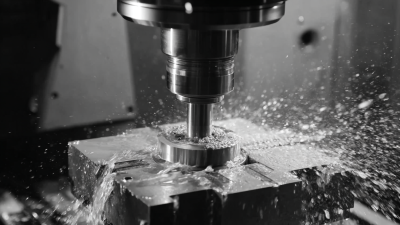In the rapidly evolving landscape of healthcare technology, the importance of selecting the right Medical Device Adapter for your specific needs cannot be overstated. According to a recent report by ResearchAndMarkets, the global medical device connectivity market is projected to reach $7.8 billion by 2025, driven by the increasing integration of connected devices in healthcare settings. As medical devices become more sophisticated, the reliance on effective adapters to ensure seamless communication and data transfer is paramount. These adapters not only enhance the functionality of medical devices but also play a critical role in improving patient outcomes and operational efficiency. This guide aims to provide expert insights and practical solutions for choosing the ideal Medical Device Adapter that meets the diverse requirements of various healthcare environments.

When it comes to selecting the right medical device adapter, understanding the different types available is crucial for ensuring compatibility and optimal performance. Medical device adapters can vary widely, each designed to serve specific purposes. Some common types include power adapters, communication adapters, and protocol converters. Power adapters are essential for supplying the correct voltage and current to the medical devices, while communication adapters facilitate data transmission between devices and healthcare systems. Protocol converters enable devices that operate on different communication protocols to exchange information seamlessly.
It is also important to consider the regulatory standards and certifications related to medical device adapters. Since these devices are often used in critical healthcare settings, ensuring they meet safety and efficacy guidelines is non-negotiable. Furthermore, the complexity of various adapters means that healthcare providers should prioritize ease of use, reliability, and support when making their choice. By comprehensively assessing these factors, healthcare professionals can select medical device adapters that not only suit their immediate needs but also contribute to long-term efficiency and safety in patient care.
 When selecting a medical device adapter, several key factors should be considered to ensure compatibility and efficiency in your healthcare setting. First and foremost, assess the specific requirements of your medical devices. Different devices may have varying power requirements, connector types, and communication protocols. Make sure to consult the device specifications to avoid potential damage or malfunctions.
When selecting a medical device adapter, several key factors should be considered to ensure compatibility and efficiency in your healthcare setting. First and foremost, assess the specific requirements of your medical devices. Different devices may have varying power requirements, connector types, and communication protocols. Make sure to consult the device specifications to avoid potential damage or malfunctions.
Tip: Always double-check the adapter’s voltage and current ratings against your device's specifications. Using an incorrect adapter can lead to serious issues, including device failure or safety hazards.
Another important factor is the quality and reliability of the adapter. Look for adapters that are certified and meet industry standards, as these are generally safer and more durable. Additionally, consider the manufacturer’s reputation. Research reviews and testimonials to ensure that you are investing in a product that has proven performance in real-world conditions.
Tip: Opt for adapters that come with a warranty or guarantee. This not only protects your investment but also assures you of the manufacturer's confidence in their product's reliability.
When selecting the right medical device adapter, ensuring compatibility with your existing medical devices is paramount. According to a report by MarketsandMarkets, the global medical equipment connectivity market is expected to reach $10.1 billion by 2025, highlighting the growing importance of interoperability in medical devices. A compatible adapter guarantees that devices can communicate effectively, preventing potential risks associated with data exchange failures.
Furthermore, it's essential to consider the specifications of the devices in use. A study by the FDA indicates that 30% of medical device recalls from 2017 to 2021 were due to issues related to connectivity and compatibility. Therefore, potential buyers should carefully assess the adapter’s specifications—such as ports, voltage outputs, and supported protocols—against their device's requirements. Conducting thorough research on manufacturer guidelines and industry standards will significantly aid in selecting an adapter that not only fits but enhances the functionality of medical devices, ensuring optimal performance in critical healthcare environments.
When selecting a medical device adapter, understanding safety standards and regulations is crucial. Medical device adapters must comply with various regulatory frameworks, such as the FDA guidelines in the United States and the Medical Device Regulation (MDR) in the European Union. These regulations ensure that the devices meet stringent safety and quality criteria, which are vital to protecting patient health and preventing device malfunction. Manufacturers are required to conduct thorough risk assessments and clinical evaluations to demonstrate that their adapters are safe for use and can effectively support the medical devices they are intended to connect with.
Additionally, international standards, such as those set by the International Electrotechnical Commission (IEC) and the International Organization for Standardization (ISO), provide guidelines on the design and testing of medical device adapters. Compliance with these standards not only enhances product reliability but also facilitates global market access. When choosing an adapter, healthcare providers should verify that it meets the necessary safety certifications and is compliant with relevant regulatory bodies. Being informed about these standards and regulations can significantly mitigate risks associated with medical device use, ensuring both safety and efficacy in patient care.
| Adapter Type | Compatibility | Safety Certification | Regulatory Standard | Usage Scenario |
|---|---|---|---|---|
| Universal Power Adapter | Various Devices | CE, UL | IEC 60601-1 | Home Health Care |
| Rowing Machine Adapter | Rowing Machines | FCC, RoHS | ISO 13485 | Fitness Equipment |
| Portable ECG Adapter | ECG Machines | FDA, ISO | IEC 60601-2-25 | Cardiology |
| Battery Charger Adapter | Various Battery Types | CE, RoHS | IEC 60950 | Emergency Equipment |
| Infusion Pump Adapter | Infusion Pumps | CE, FDA | IEC 60601-1-2 | Hospital Use |
Maintaining your medical device adapter is crucial for ensuring optimal performance and longevity. Regular inspection is a key aspect of maintenance. Check for signs of wear and tear, such as frayed cables or loose connections, and replace any damaged components immediately. Keeping the adapter clean and free of dust can also prevent malfunctions. A microfiber cloth can be used to gently wipe any dirt from the surface, while ensuring that no moisture infiltrates the device.

Troubleshooting common issues is equally important. If your medical device isn't receiving power, start by checking the adapter's connections to both the device and the power outlet. If the device still isn't functioning, try using a different outlet or another compatible device to rule out outlet issues. Additionally, be mindful of compatibility between devices; using the incorrect adapter can lead to performance drops or permanent damage. Documenting any recurring issues will assist in diagnosing problems more efficiently and can help inform your choice should a replacement be necessary.






